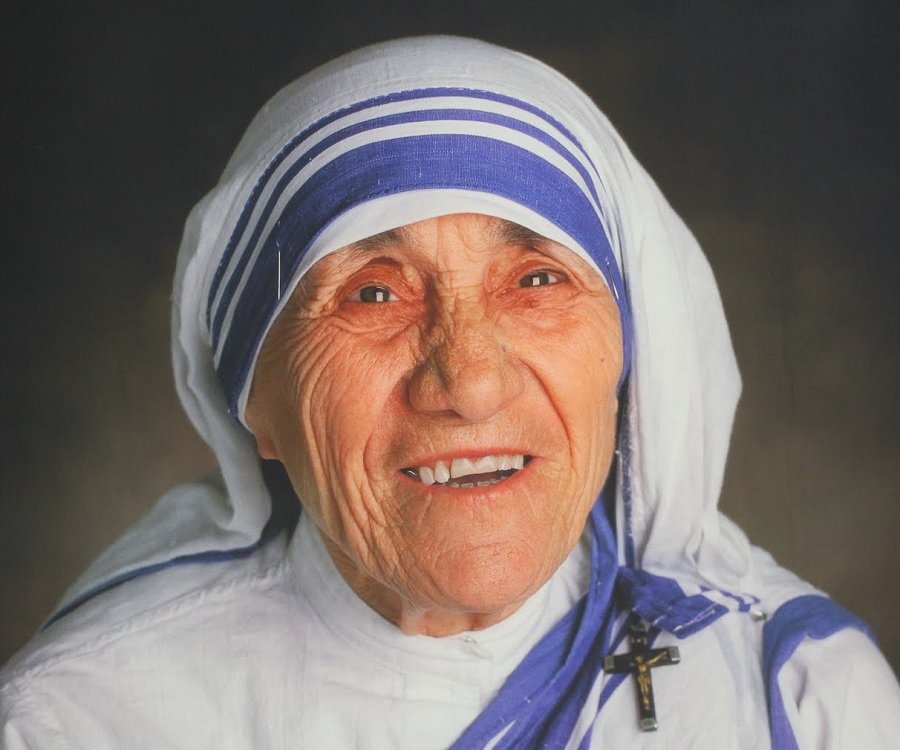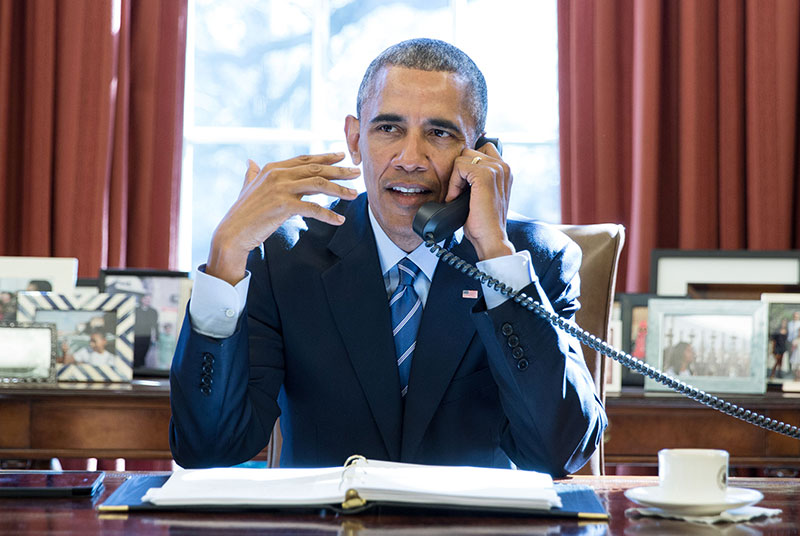Since 1901, the Nobel Peace Prize, one of the world's leading awards has been awarded every year to individuals and organizations for their exceptional efforts towards peace, conflict resolution, and advancement of human rights. Alfred Nobel, the inventor of dynamite, established the award via his will in recognition of actions that evoke humanity towards peaceful and unviolent living.
Although there have been many laureates over the years, they include world leaders, activists, humanitarian organizations, and dreamers: Martin Luther King Jr., Mother Theresa, Malala Yousafzai, and as recently as the United Nations. Each laureate is reflective of a special commitment to justice and empathy. The following is a complete list of winners of the Nobel Peace Prize from 1901-2024 on account of their lasting influence on peace around the globe.
Check Out: List of Top 10 Famous American Nobel Prize Winners and Their Achievements
Who Won the Nobel Peace Prize 2025?

In 2025, María Corina Machado received the Nobel Peace Prize. She was commended for her resolute public stances for democracy, human rights, and non-violent political change in Venezuela. As a leading figure in the opposition, she has taken unyielding positions against authoritarianism in Venezuela, inspired millions on behalf of free elections, and believed in justice and civil liberties.
Although she has been persecuted and, at times, denied due process, María Corina Machado has remained unwavering in her aim to restore democratic institutions and serve her fellow citizens. Her award from the Nobel Committee is an international acknowledgment of the importance of peaceful resistance in combating unjust political oppression and the durability of democratic values in the public sphere.
List of Nobel Peace Prize Winners (1901-2025)
Here is the complete list of Nobel Peace Prize Winners from the year 1901 to 2025, along with their contributions, which helped them land the award:
| Year | Laureate(s) | Contribution |
| 1901 | Henry Dunant; Frédéric Passy | Red Cross founder; peace activism |
| 1902 | Élie Ducommun; Charles-Albert Gobat | Peace movement leaders |
| 1903 | William Randal Cremer | International arbitration advocate |
| 1904 | Institute of International Law | Advancing global law |
| 1905 | Bertha von Suttner | Anti-war literature influence |
| 1906 | Theodore Roosevelt | Russo-Japanese peace treaty |
| 1907 | Moneta; Renault | Peace and law efforts |
| 1908 | Arnoldson; Bajer | Peace through parliamentarianism |
| 1909 | Beernaert; d’Estournelles | Diplomatic reconciliation work |
| 1910 | Permanent International Peace Bureau | Promoting global peace congresses |
| 1911 | Asser; Fried | International law and peace |
| 1912 | Elihu Root | Legal diplomacy efforts |
| 1913 | Henri La Fontaine | Internationalism and arbitration |
| 1914-1916 | NA | No award (World War I) |
| 1917 | International Committee of the Red Cross | Humanitarian war relief |
| 1918 | NA | No award |
| 1919 | Woodrow Wilson | League of Nations founder |
| 1920 | Léon Bourgeois | League of Nations advocate |
| 1921 | Branting; Lange | Peace and cooperation |
| 1922 | Fridtjof Nansen | Refugee relief efforts |
| 1923-1924 | NA | No award |
| 1925 | Chamberlain; Dawes | Post-WWI reconciliation |
| 1926 | Briand; Stresemann | Franco-German rapprochement |
| 1927 | Buisson; Quidde | Pacifism and education |
| 1928 | NA | No award |
| 1929 | Frank B. Kellogg | Kellogg-Briand Pact architect |
| 1930 | Nathan Söderblom | Church unity for peace |
| 1931 | Addams; Butler | Social reform, peace work |
| 1932 | NA | No award |
| 1933 | Norman Angell | Anti-war writings |
| 1934 | Arthur Henderson | Disarmament conference leader |
| 1935 | Carl von Ossietzky | Anti-Nazi journalism |
| 1936 | Carlos Saavedra Lamas | Peace in South America |
| 1937-1939 | NA | No award |
| 1944 | Red Cross | WWII humanitarian aid |
| 1946 | Balch; Mott | Peace education, youth work |
| 1947 | Friends Service Council; AFSC | Quaker humanitarian service |
| 1949 | Lord Boyd Orr | Food security advocacy |
| 1950 | Ralph Bunche | Middle East mediation |
| 1951 | Léon Jouhaux | Labor peace activism |
| 1952 | Albert Schweitzer | Humanitarian medicine in Africa |
| 1953 | George C. Marshall | European reconstruction (Marshall Plan) |
| 1954 | UNHCR | Refugee protection efforts |
| 1957 | Lester B. Pearson | UN peacekeeping initiatives |
| 1958 | Georges Pire | Refugee aid programs |
| 1959 | Philip Noel-Baker | Disarmament advocacy |
| 1960 | Albert Luthuli | Anti-apartheid leadership |
| 1961 | Dag Hammarskjöld | UN diplomacy and service |
| 1962 | Linus Pauling | Nuclear disarmament activism |
| 1963 | ICRC; League of Red Cross | Humanitarian relief cooperation |
| 1964 | Martin Luther King Jr. | Civil rights leadership |
| 1968 | René Cassin | Human rights drafting |
| 1969 | International Labour Organization | Workers’ rights advocacy |
| 1970 | Norman Borlaug | Green Revolution pioneer |
| 1971 | Willy Brandt | East-West reconciliation |
| 1973 | Kissinger; Le Duc Tho | Vietnam War negotiations |
| 1974 | MacBride; Satō | Disarmament and peace policy |
| 1975 | Andrei Sakharov | Human rights activism |
| 1976 | Williams; Corrigan | Peace in Northern Ireland |
| 1977 | Amnesty International | Human rights advocacy |
| 1978 | Begin; Sadat | Egypt-Israel peace accord |
| 1979 | Mother Teresa | Humanitarian service |
| 1980 | Pérez Esquivel | Nonviolent human rights defense |
| 1981 | UNHCR | Global refugee assistance |
| 1982 | Myrdal; García Robles | Nuclear disarmament efforts |
| 1983 | Lech Wałęsa | Solidarity movement leader |
| 1984 | Desmond Tutu | Anti-apartheid reconciliation |
| 1985 | IPPNW | Anti-nuclear medical movement |
| 1986 | Elie Wiesel | Holocaust remembrance advocate |
| 1987 | Óscar Arias Sánchez | Central American peace accords |
| 1988 | UN Peacekeeping Forces | International peacekeeping efforts |
| 1989 | Dalai Lama | Nonviolent Tibetan struggle |
| 1990 | Mikhail Gorbachev | Cold War easing |
| 1991 | Aung San Suu Kyi | Democracy in Myanmar |
| 1992 | Rigoberta Menchú Tum | Indigenous rights activism |
| 1993 | Mandela; de Klerk | Ending apartheid |
| 1994 | Rabin; Peres; Arafat | Middle East peace talks |
| 1995 | Rotblat; Pugwash Conferences | Nuclear disarmament advocacy |
| 1996 | Belo; Ramos-Horta | East Timor peace |
| 1997 | Jody Williams; ICBL | Ban landmines campaign |
| 1998 | Hume; Trimble | Northern Ireland peace |
| 1999 | Doctors Without Borders | Medical humanitarian aid |
| 2000 | Kim Dae-jung | Korean reconciliation efforts |
| 2001 | Kofi Annan; United Nations | Global peace promotion |
| 2002 | Jimmy Carter | Peaceful diplomacy advocacy |
| 2003 | Shirin Ebadi | Human rights in Iran |
| 2004 | Wangari Maathai | Environmental conservation activism |
| 2005 | IAEA; Mohamed ElBaradei | Nuclear non-proliferation work |
| 2006 | Muhammad Yunus; Grameen Bank | Microfinance for poverty relief |
| 2007 | IPCC; Al Gore | Climate change awareness |
| 2008 | Martti Ahtisaari | Conflict mediation expert |
| 2009 | Barack Obama | Strengthening diplomacy |
| 2010 | Liu Xiaobo | Democratic reform advocacy |
| 2011 | Sirleaf; Gbowee; Karman | Women’s peace activism |
| 2012 | European Union | Peace in Europe |
| 2013 | OPCW | Chemical weapons ban |
| 2014 | Satyarthi; Yousafzai | Child rights, education |
| 2015 | Tunisian Dialogue Quartet | Democratic mediation |
| 2016 | Juan Manuel Santos | Colombia peace accord |
| 2017 | ICAN | Nuclear disarmament campaign |
| 2018 | Mukwege; Murad | Anti-sexual violence activism |
| 2019 | Abiy Ahmed | Ethiopia-Eritrea peace |
| 2020 | World Food Programme | Combating world hunger |
| 2021 | Maria Ressa; Muratov | Press freedom defense |
| 2022 | Bialiatski; Memorial; CCL | Human rights advocacy |
| 2023 | Narges Mohammadi | Women’s rights activism |
| 2024 | Nihon Hidankyo | Nuclear survivors’ advocacy |
| 2025 | María Corina Machado | Nonviolent democracy protest |
Top 5 Greatest Nobel Peace Prize Winners
Here are the top 5 Greatest Nobel Peace Prize Winners, marked by their great work and effort towards humanitarian work and contribution to world peace:
1. Martin Luther King Jr. (1964, USA)

For his role in leading the American Civil Rights Movement using nonviolence and moral leadership, Martin Luther King, Jr., received the Nobel Peace Prize. He dreamt of a world where racial equality was a reality, and his vision has inspired millions of people around the world. King's ethic of peaceful resistance helped diverted social justice movements across the globe and still provide ethical and moral grounding for contemporary mechanisms for equality and human rights.
2. Mother Teresa (1979, India)

Mother Teresa received the Nobel Peace Prize for her entire existence devoted to serving the poorest and sickest of people through her Missionaries of Charity. Her servant-style leadership, modesty and humanitarian endeavors in Kolkata reminded the world of poverty, but also dignity and decency. She is also an example of universal love, mercy, and service to humanity inspired by faith.
3. Nelson Mandela (1993, South Africa)
Nelson Mandela was awarded the Nobel Peace Prize for his leadership in the non-violent struggle to end apartheid and promote reconciliation in South Africa. After 27 years of imprisonment, Mandela emerged as a symbol of forgiveness and unity, transforming his country through peace, equity and fidelity to human rights and democratic freedoms.
4. Barack Obama (2009, USA)

Barack Obama was awarded the Nobel Peace Prize for his vision for a world in which international diplomacy and cooperation among nations have come to life. The Nobel Committee recognized his efforts, including a commitment to nuclear disarmament and multilateral diplomatic engagement, and dialogue.
The prize itself did not advance the cause of peace or security for our contemporary world, but it was a symbol of hope for a more peaceful world based on unity, mutual respect, and understanding among peoples.
5. Malala Yousafzai (2014, Pakistan)

Malala Yousafzai became the youngest Nobel laureate for her advocacy for girls' education, first in Pakistan then globally. After being shot in the head by the Taliban while on a school bus, Yousafzai not only survived, but also strengthened her advocacy efforts to end the unlawful discrimination of girls' learning opportunities.
Today, her courage of conviction and activism style make her a sustainable, recognizable voice for children, their rights, empowerment, and education across the globe.
Conclusion
The Nobel Peace Prize is a perpetual emblem of mankind's quest for compassion, justice, and the possibility of a world at peace. From Martin Luther King Jr.'s struggle for civil rights to Malala Yousafzai's fight for education, every laureate, in his or her own way, reminds us that peace is not simply the absence of conflict, but the presence of dignity, equal rights, and hope.
All embodied courage, conviction, and selfless service which, also urged and convinced future generations to make the choice to act with kindness and resolve. As one continent or challenge fades away, another emerges, and the legacy of Nobel Peace Prize winners once again shines an important light, to encourage peoples and nations to choose to work towards peace and togetherness.

Comments
All Comments (0)
Join the conversation